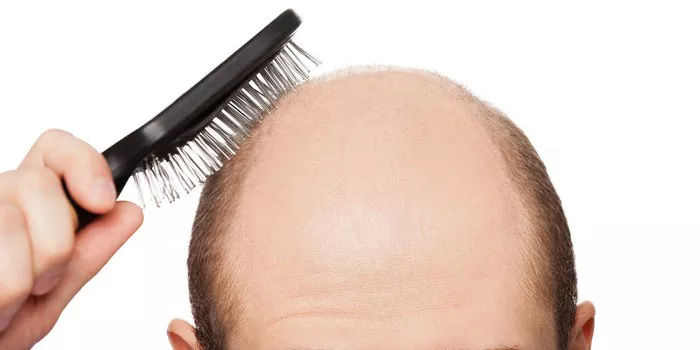Hair loss, a concern that affects millions worldwide, is often attributed to a hormone called dihydrotestosterone (DHT). DHT, a byproduct of testosterone, can contribute to hair thinning and eventual loss. The big question that lingers in the minds of many is whether hair loss caused by DHT can be reversed. In this article, we’ll delve into the science behind DHT-related hair loss, explore potential treatments, and provide insights into the possibility of reversing its effects.
Understanding DHT and its Role in Hair Loss
DHT is a potent androgen hormone that plays a crucial role in the development of male characteristics. However, when it comes to hair health, high levels of DHT can be detrimental. DHT attaches to hair follicles, causing them to shrink over time. This process, known as miniaturization, results in thinner, shorter hair strands and, eventually, hair loss.
The Genetic Factor: Is It Reversible?
One of the primary causes of DHT-related hair loss is genetic predisposition. If you have a family history of male pattern baldness or female pattern baldness, your genetic makeup may make you more susceptible to the effects of DHT. Unfortunately, the genetic factor makes complete reversal challenging.
Current Treatments for DHT-Induced Hair Loss
While complete reversal may be difficult, several treatments aim to slow down or even partially reverse the effects of DHT on hair loss. Here are some notable approaches:
FDA-Approved Medications: Two FDA-approved medications—finasteride (Propecia) and minoxidil (Rogaine)—have shown effectiveness in combating DHT-related hair loss. Finasteride works by inhibiting the production of DHT, while minoxidil stimulates hair growth. It’s important to note that individual responses may vary, and consistent use is required to see results.
Low-Level Laser Therapy (LLLT): LLLT is a non-invasive treatment that uses red light to stimulate hair follicles. Some studies suggest that LLLT may help slow down hair loss and promote hair regrowth by increasing blood flow and cellular activity in the scalp.
Platelet-Rich Plasma (PRP) Therapy: PRP therapy involves injecting the patient’s own platelet-rich plasma into the scalp to stimulate hair follicles. While research is ongoing, some studies indicate that PRP may be a promising treatment for DHT-induced hair loss.
Topical DHT Blockers: Some topical products contain DHT blockers, such as saw palmetto and ketoconazole, which aim to reduce the impact of DHT on the hair follicles when applied to the scalp.
Lifestyle Changes to Support Hair Health
In addition to medical treatments, adopting certain lifestyle changes can contribute to overall hair health and potentially minimize the impact of DHT:
Balanced Diet: Nutrient-rich foods, including vitamins and minerals like biotin, vitamin D, and iron, support healthy hair growth. Consult with a healthcare professional to determine if supplements are necessary.
Stress Management: Chronic stress can contribute to hair loss. Practices such as meditation, yoga, and deep breathing exercises can help manage stress levels and promote overall well-being.
Gentle Hair Care Practices: Avoiding harsh hair care practices, such as tight hairstyles and excessive heat styling, can prevent additional stress on already weakened hair.
The Realities of Reversal: What to Expect
While treatments and lifestyle changes can help manage and potentially slow down DHT-related hair loss, it’s essential to set realistic expectations. Complete reversal, especially for advanced cases, may be challenging. Early intervention often yields better results, making it crucial to address hair loss concerns promptly.
See Also: What Age Do Men Stop Losing Hair: What You Need To Know
Conclusion: Taking Control of DHT-Induced Hair Loss
In the quest to address DHT-induced hair loss, understanding the underlying causes and available treatments is key. While complete reversal may not always be achievable, individuals can take control of their hair health by exploring FDA-approved medications, innovative therapies, and embracing healthy lifestyle habits. Early intervention, consistent treatment, and realistic expectations are vital components of any approach to combat DHT-related hair loss. By combining medical interventions with proactive lifestyle choices, individuals can optimize their chances of maintaining a healthy and vibrant head of hair.


